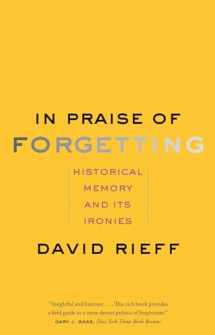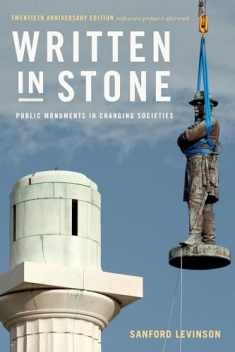
In Praise of Forgetting: Historical Memory and Its Ironies
ISBN-13:
9780300227109
ISBN-10:
0300227108
Edition:
Reprint
Author:
David Rieff
Publication date:
2017
Publisher:
Yale University Press
Format:
Paperback
160 pages
FREE US shipping
Book details
ISBN-13:
9780300227109
ISBN-10:
0300227108
Edition:
Reprint
Author:
David Rieff
Publication date:
2017
Publisher:
Yale University Press
Format:
Paperback
160 pages
Summary
In Praise of Forgetting: Historical Memory and Its Ironies (ISBN-13: 9780300227109 and ISBN-10: 0300227108), written by authors
David Rieff, was published by Yale University Press in 2017.
With an overall rating of 3.6 stars, it's a notable title among other
African History
(Americas History, Asian History, Australia & New Zealand, Australia & Oceania History, European History, Military History, Consciousness & Thought, Philosophy, Social Sciences) books. You can easily purchase or rent In Praise of Forgetting: Historical Memory and Its Ironies (Paperback) from BooksRun,
along with many other new and used
African History
books
and textbooks.
And, if you're looking to sell your copy, our current buyback offer is $0.75.
Description
A leading contrarian thinker explores the ethical paradox at the heart of history's wounds
The conventional wisdom about historical memory is summed up in George Santayana’s celebrated phrase, “Those who cannot remember the past are condemned to repeat it.” Today, the consensus that it is moral to remember, immoral to forget, is nearly absolute. And yet is this right?
David Rieff, an independent writer who has reported on bloody conflicts in Africa, the Balkans, and Central Asia, insists that things are not so simple. He poses hard questions about whether remembrance ever truly has, or indeed ever could, “inoculate” the present against repeating the crimes of the past. He argues that rubbing raw historical wounds—whether self-inflicted or imposed by outside forces—neither remedies injustice nor confers reconciliation. If he is right, then historical memory is not a moral imperative but rather a moral option—sometimes called for, sometimes not. Collective remembrance can be toxic. Sometimes, Rieff concludes, it may be more moral to forget.
Ranging widely across some of the defining conflicts of modern times—the Irish Troubles and the Easter Uprising of 1916, the white settlement of Australia, the American Civil War, the Balkan wars, the Holocaust, and 9/11—Rieff presents a pellucid examination of the uses and abuses of historical memory. His contentious, brilliant, and elegant essay is an indispensable work of moral philosophy.
The conventional wisdom about historical memory is summed up in George Santayana’s celebrated phrase, “Those who cannot remember the past are condemned to repeat it.” Today, the consensus that it is moral to remember, immoral to forget, is nearly absolute. And yet is this right?
David Rieff, an independent writer who has reported on bloody conflicts in Africa, the Balkans, and Central Asia, insists that things are not so simple. He poses hard questions about whether remembrance ever truly has, or indeed ever could, “inoculate” the present against repeating the crimes of the past. He argues that rubbing raw historical wounds—whether self-inflicted or imposed by outside forces—neither remedies injustice nor confers reconciliation. If he is right, then historical memory is not a moral imperative but rather a moral option—sometimes called for, sometimes not. Collective remembrance can be toxic. Sometimes, Rieff concludes, it may be more moral to forget.
Ranging widely across some of the defining conflicts of modern times—the Irish Troubles and the Easter Uprising of 1916, the white settlement of Australia, the American Civil War, the Balkan wars, the Holocaust, and 9/11—Rieff presents a pellucid examination of the uses and abuses of historical memory. His contentious, brilliant, and elegant essay is an indispensable work of moral philosophy.


We would LOVE it if you could help us and other readers by reviewing the book
Book review

Congratulations! We have received your book review.
{user}
{createdAt}
by {truncated_author}



